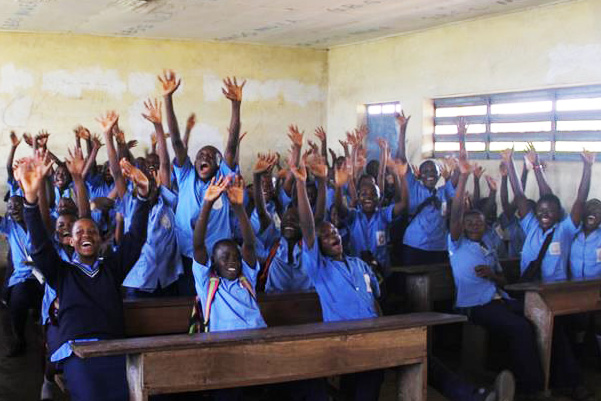Every year, September 8th marks International Literacy Day, a reminder of the importance of literacy as a fundamental human right and a cornerstone for individual and societal development. However, in Nigeria, illiteracy remains a daunting challenge, with millions of children out of school, especially in rural areas and the northern regions. More must be done to improve the country’s literacy rates and secure a brighter future for all Nigerians.
Nigeria holds the grim title of having one of the highest numbers of out-of-school children in the world, with an estimated 20 million children aged 6 to 18 not receiving formal education as of 2023. This statistic is compounded by regional disparities, with the northern part of the country disproportionately affected due to factors such as poverty, cultural beliefs, insecurity, and inadequate infrastructure. The literacy rate in the north of Nigeria is a staggering 53.3%, compared to a more favorable 85.6% in the southern regions.
Moreover, adult illiteracy rates further highlight the country’s struggle. According to recent UNESCO reports, about 35% of Nigerian adults remain illiterate, translating to around 31 million people. This is particularly troubling in a 21st-century economy where digital literacy is becoming essential for participation in the global workforce.
During Goodluck Jonathan’s administration (2010–2015), the government introduced several education reform programs aimed at increasing school enrollment. One of the most significant of these was the National Home-Grown School Feeding Program (NHGSFP), which provided free, nutritious meals to primary school children. The program’s primary goal was to boost school enrollment by making education more attractive to parents, especially in low-income households.
The initiative was successful to some extent. A UNESCO study found that the program increased school attendance by 30% in some areas and was particularly effective in rural communities. By alleviating the financial burden of feeding children, more parents were willing to send their children to school. This initiative not only tackled hunger but also became a key factor in improving literacy by ensuring children were in school rather than at home or on the streets.
This government might also decide to bring back the NHGSFP, and also take up other approaches to increasing enrollment.
A significant barrier to literacy in Nigeria is the lack of proper school infrastructure and adequately trained teachers. Government must invest in building schools in underserved areas, equipping them with learning materials, and ensuring that teachers are properly trained and compensated.
There should be Special focus on increasing the enrollment of girls, especially in northern Nigeria, where cultural and religious practices often limit girls’ access to education. The provision of scholarship schemes, and community engagement campaigns could encourage parents to feel safe to send their daughters to school. Studies show that educating girls leads to significant improvements in family health, economic productivity, and societal well-being.
Tackling adult illiteracy is just as important as improving children’s literacy. Focusing on functional literacy and vocational training, can empower illiterate adults with skills to improve their livelihoods while fostering a culture of education in families.
Also, government’s Universal Basic Education (UBE) initiative, aimed at providing free primary education, could further be strengthened.
Additionally, with the growing penetration of mobile technology in Nigeria, digital literacy programs could serve as a powerful tool for expanding access to education. E-learning platforms, mobile-based learning applications can be used to reach children and adults in remote areas.
The development of local-language educational content will also ensure inclusivity, especially in northern Nigeria, where language barriers often limit access to education.
Providing financial incentives to families whose children attend school regularly can significantly increase enrollment. By adopting Conditional cash transfer programs that have worked in countries like Brazil. A Nigerian version of this could tie cash payments to children’s attendance and performance in school, particularly targeting regions with the highest rates of out-of-school children, specifically Northern Nigeria.
On this International Literacy Day, Nigeria must reflect on its literacy crisis and take bold steps to address the millions of children out of school.
As Nigeria continues to grow and evolve, literacy will remain a key driver for economic development, social mobility, and empowerment.
